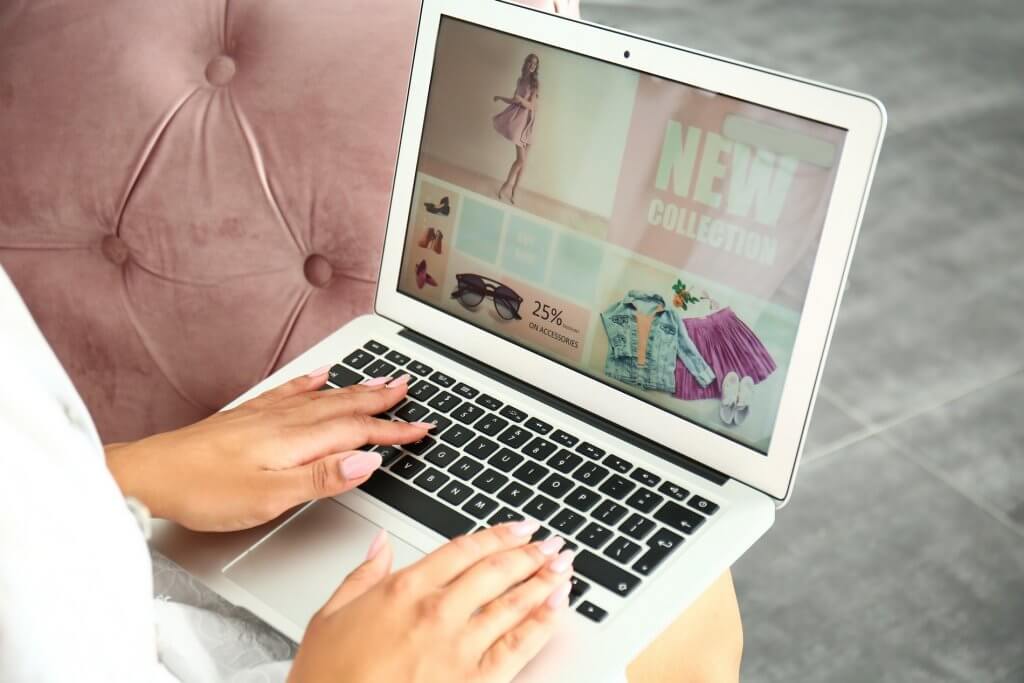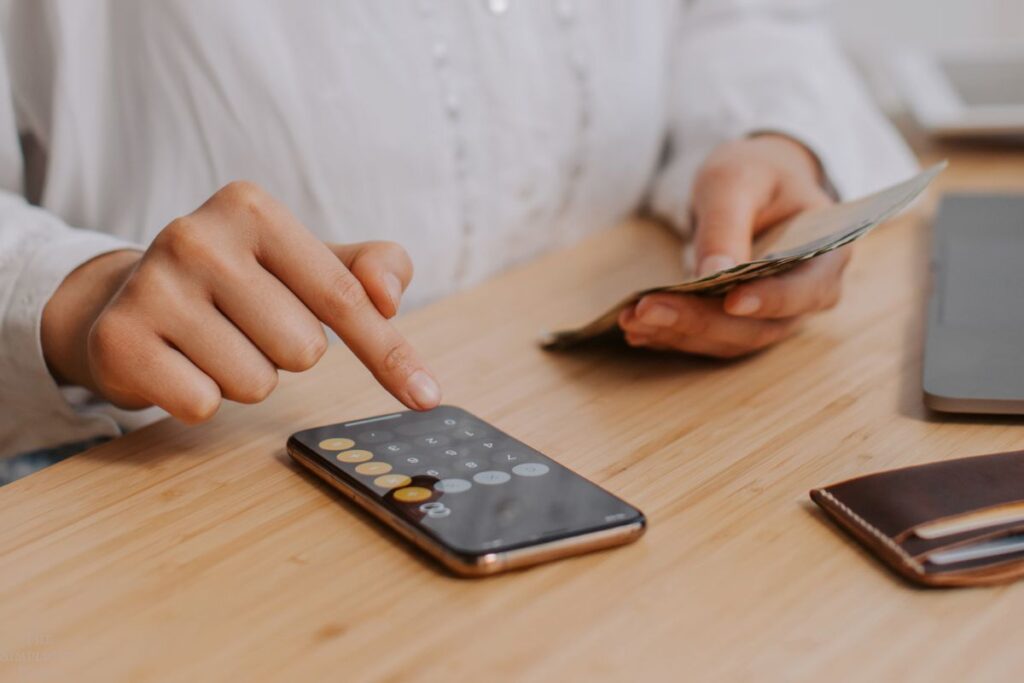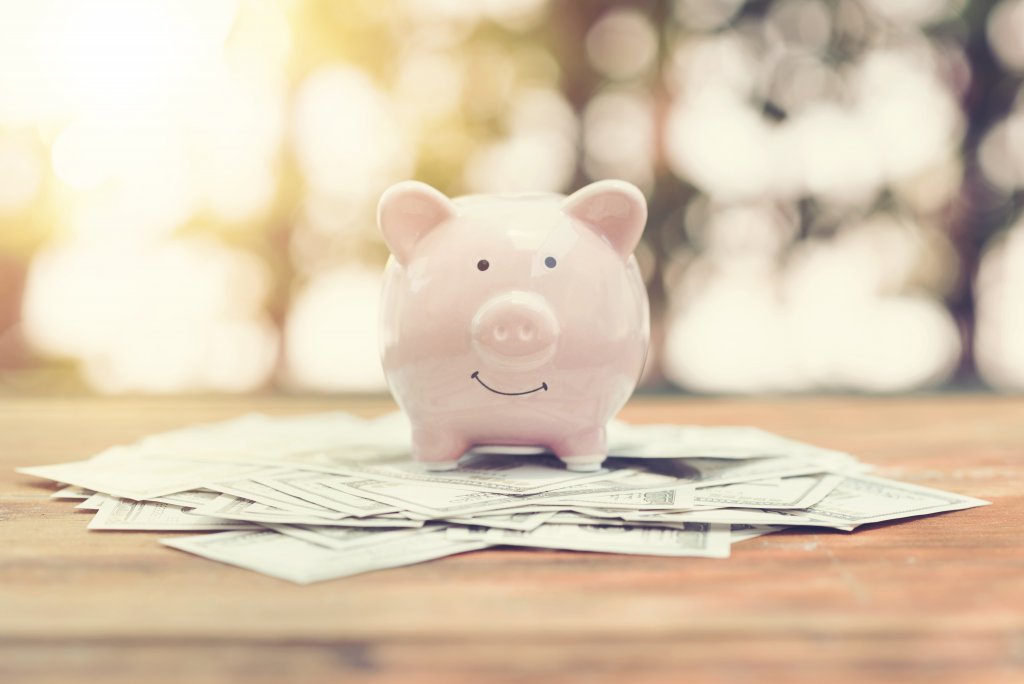Inside: Is impulse purchasing ruining your monthly budget? Learn why we make impulsive purchases and how to stop them.
We’ve all experienced it – that irresistible urge to buy something on a whim.
Maybe something caught your eye at your favorite boutique. Or maybe it was an online purchase – a targeted ad on Instagram or Facebook, or something you simply couldn’t resist adding to your Amazon cart.
Wherever it was, you saw it – and you felt like you had to have it.
Right now.
And with the simple swipe of a card, you made it happen.
While not all unanticipated purchases are bad, impulse shopping is a habit you really don’t want to embrace. And like most bad habits, once you develop a taste for impulse purchasing, it’s hard to go back.
Not sure what drives you to shop impulsively? Want to know how to resist temptation and put an end to impulse buying?
I’ve got you covered. Keep reading to see why so many of us fall into the trap of impulsive shopping – and what we can do to stop it.

Impulse Purchasing: Why Are We So Tempted to Shop?
Resisting the urge to avoid all impulse purchases is easier said than done… but why is it so hard?
Even when we set a budget and manage our money meticulously, it can be difficult – if not nearly impossible – to say “no” when you stumble across that must-have item.
And there isn’t a single answer or source of truth as to why we can’t resist. Instead, there are a few things that make us susceptible to impulse purchasing.
1. Advertisements are too good.
Many of us are exposed to advertisements all day, every day – consciously and subconsciously.
Whether you’re watching TV, reading your mail, listening to the radio, browsing the Internet or scrolling through your favorite app, or even walking around town, you’re being exposed to ads for countless products and services.
It’s something corporations have mastered as a science, and it’s something that’s absolutely pervasive in our lives.
And thanks to the overwhelming amount of data advertisers can gather about each of us as individuals, these ads truly know how to target their audience – you, specifically.
As a result, they can be incredibly effective in achieving their goal and tempting you to make an impulsive purchase.
2. We believe that the item can improve our life in some way.
We want to believe that these items can live up to the claims and that our life can be instantly improved through a few clicks on a computer.
The message that buying an item can make you feel better, look better, be able to do something more easily, or give you a quick fix or shortcut can be an almost irresistible temptation.
We want to believe the advertising messaging so we overstate the potential benefits of the product and don’t give careful consideration to the purchase.
Every item you buy takes not only your money but also your energy into cleaning, storing, organizing, maintaining, and moving it. But that often isn’t what we think about when making an impulse purchase.

3. We like to shop.
Sometimes, we make impulse purchases simply because we want to. There’s something gratifying about finding something you like and being able to get it on the spot.
The little rush of dopamine that happens when you buy something new and exciting is real – and only serves to reinforce your shopping habit.
In some situations, this feeling can end up creating a shopping addiction. With the options we have available to us, it’s never been easier to buy new stuff.
You don’t even have to leave the comfort of your home or make a phone call to order the item you want. With a few quick clicks of a mouse, the money is gone and the item is on its way to your house.
The excitement of purchasing a product can wear off before it even arrives at your home. New things are often quickly forgotten and thus the cycle repeats as another purchase is made to achieve that feeling of anticipation again.
4. Self-control – or a lack thereof.
Even if we set a budget and put controls in place to help us manage our money, the temptation to impulse shop can be too difficult to resist.
Even those with aggressive budgets and incredible self-control can fall victim to the urge to buy something they really want.
We’ve become accustomed to getting what we want when we want it. As technology has developed and decreased wait times, our ability to tolerate waiting has diminished.
Why wait when you can just charge it now? Credit cards and loans enable you to attain the item without even paying for it immediately.
The culture tells you that you deserve it. And social media further encourages FOMO (the fear of missing out). Unfortunately in the process, whether or not you can actually afford the item gets glossed over.

5 Steps to Stop Impulse Buying
It can be difficult to resist the temptation to impulse shop, but it definitely isn’t impossible. With a few helpful tips and strategies, you can stop – or at least, significantly cut back – on those impromptu buys.
1. Create a budget.
If you don’t already have a budget in place to help you keep track of your income and expenses, it’s a good idea to create one. Using these practical budgeting tips can help.
A budget can help you gain a better overall understanding of your financial situation, achieve your financial goals, stay on top of your bills, and more.
Budgeting can be as simple as sitting down with a piece of paper and doing some basic math on the money coming in and going out each month.
Prefer a tech-based approach? There are endless apps and online tools available to help you track your money, categorize your spending, automate your payments, and more.
By strictly sticking to your budget, you can tell yourself “no” when the urge to buy something arises that isn’t within your financial plans.

2. Set a financial goal.
Setting a financial goal can be a great way to resist the temptation to impulse shop.
Whether you’re aiming to retire early, build up an emergency fund, save up for your dream vacation, or buy a new mattress, thinking about your goal when that urge arises can make that impulse buy a little less enticing.
Consider what better things you could do with your money if you bought less stuff.
Knowing that splurging on something is going to impact your ability to reach your goals can be a strong deterrent.
If you want to gamify the process, challenge yourself to see how much you can save in a year by living more simply.
3. Limit access to your money.
Still can’t seem to resist the temptation to give into impulse purchasing? Eliminate your ability to buy things you don’t need by making it more challenging to spend your money.
If you want to quickly quit a bad habit, make that behavior more difficult to do.
Instead of heading out to the store with several debit and credit cards in your wallet, limit yourself to a single form of payment – ideally, tied to an account with a limited amount of cash in it. Or simply pay with cash.
Many banks will also let you put a freeze on your debit or credit cards – meaning you can’t use them to buy anything without calling (or signing into your app) and unlocking them.
This extra level of effort might just be the deterrent you need to avoid the urge to impulse buy.
And if online shopping is your thing? Don’t save your card information on your computer or phone.

4. Put a waiting period in place for all unplanned purchases.
One of the biggest reasons we impulse shop is the sense of instant gratification that comes with buying what we want.
By breaking that cycle and choosing to be more intentional with shopping, you can stop yourself from giving in to the majority of your urges to buy stuff you don’t actually need.
The idea is simple. See something you really, really want to buy? Tell yourself that you can buy it – but only if you wait 24 or 48 hours first.
By giving yourself that extra time to cool off and really think about that purchase, you’ll likely find the temptation fades away and the logical, rational part of your brain takes over.
The idea isn’t nearly as appealing – and in many cases, you realize you don’t need to buy that thing at all.

5. Actively avoid temptation.
One of the best things you can do to avoid impulse shopping is to avoid situations that often lead to it. If you have a problem with shopping, taking this step is crucial.
Do you feel like you can’t walk through the mall or visit your favorite store without splurging on stuff you didn’t plan for? Skip that store, or see if you can buy whatever you need online for a quick pickup or delivery (but make sure you don’t get distracted on the site too!).
Remove shopping apps from your phone (including Amazon). If thrifting or sales at certain stores are what pull you in, delete those apps too.
If you aren’t sure what your impulse purchasing triggers are, review the purchases you’ve made in the past month or two. Where did you make unintended purchases? Understanding your own habits and behavior is a critical part of making a change.
If shopping has been a hobby for you, consider what alternatives you could embrace with your time instead.
Consider coffee with a friend, reading a book, taking a walk at a local park, or picking up a hobby you used to love or have been wanting to pursue. There are many benefits you can experience from spending your time on activities other than shopping.

Bonus tip for reducing impulse buys: declutter
One thing that drastically shifted my perspective on what I brought into my home was decluttering it.
As I sorted through all of the things I owned and faced the regret of past purchases, it informed the choices I made going forward.
Simplifying my stuff radically changed my perspective on what I owned and why I owned it. It helped me to see how each item I brought into my home took my money, time, and energy which has made me much more careful about what I buy.
How do you resist impulse purchasing? Leave a comment and let me know!
Sign up on the form below to get weekly decluttering tips and inspiration sent straight to your inbox. You’ll also get the free 5 Areas to Declutter in 10 Minutes Checklist to help you get started decluttering today.


I have two strategies now that I’ve decluttered and cut down to near minimum.
1) No matter what I have in my bank account, whether it’s $50 or $50,000, I tell myself I only have $50 to make it to the next paycheck and make myself re-evaluate the “neeeeed” I just ran across. If I buy this, am I okay with smiling meals to attain it? The money thing is a lie, but a lie that works well. It has saved me so much – money, time and energy – over the years.
2) I hate to shop so I do it online as much as is practical. I will put things in my Amazon or whatever cart then I have the self-imposed rule that I will wait until Friday to purchase (it can be any one day a week or monthly/bi-monthly that you choose). That pause gives me the chance to sit back and take a moment to breathe and evaluate whether or not I actually need the item or just want it.
Thanks for sharing, Wren. Those are great tips!
Several years ago I discovered that I impulse shop when I’m very upset. Back in the ’80’s I bought a skirt, a blouse and a sweater ($150) when I was told I was declined for graduate school. About 10 years later, I had to spend a day with my Alzheimer’s affected mother-in- law and it was so difficult that I later bought $115 of Lancome make up. Now I just don’t shop when I feel like I did those two times.
Excellent strategies! Good thinking!
I don’t know why but I’ve never been a big shopper. I can love something I see in a store and yet have no desire to own it. Even more so since I’ve been decluttering. I think to myself why would I want to add things when I’ve spent so much time getting rid of things.
I love Amazon…so in the past month, I am putting things I find in the save for later list instead of straight to the shopping cart. it’s funny cause I kinda of forget about them there…that list becomes a goal list so I can “save” for the items. when I have the cash, then I will put it in the cart and purchase. Most of the time however, I decide to delete it as I don’t really want it or need it anymore. funny how that happens!
I have a bag by my closet. Almost every day I look at my closet, find something I haven’t worn in a while and try it on. If it no longer works I put it in the bag and when the bag is full I donate to a local charity. Also, my rule is if I buy a new item it means I edit 3 items from my collection.
I avoid stores that have items that I like to have “on hand” for whenever I am in the mood for them…mostly the grocery store ! Looking at my check register tells me where I spend more than I should…and I write checks for my purchases to track where my money has gone. If I’m still tempted to buy something, I ask myself “where am I going to put it, once I get it home?.” That usually stops me, since my house needs decluttered already !
I love shopping. I love buying things I don’t really need. Love getting those boxes. But then the regret sets in when hubby sees all the boxes. And when I realize I have overspent once again. I sit in front of the computer filled with shame. I need to finda way to get past it.
Great tips! Thank you Julianna.
My issue is sweets at the grocery store or gas station. So, I pay at the pump and will start doing pickup instead of delivery since that has gotten expensive. I can resist it online but not at the checkout…
I love having money in the bank more than I need most anything. I also enjoy paying everything up front… when it’s cash I’m handing over I am more likely to realize it’s cash I won’t have tomorrow. I also agree that as I declutter I can’t hide things from myself. I have given away so many items with the tags still attached… what was I thinking!!??
I got a lot from this article and from the comments.
Thank you to everyone.
Once again this is a great article! So many tips and strategies to conquer that impulse buying and needless spending only to regret later! I also see some really good tips from the readers as well! Thank you Julianna!
I have found that my compulsive spending and debting are a disease. I have found help through Debtors Anonymous. If you need help with compulsive spending, please go to debtorsanonymous.com
My weakness is shopping on Etsy. I love handmade things. I love to support small businesses (especially women owned businesses). I buy most of my gifts for others on Etsy. It feels so good to support these people, and again I love handmade things. I have been trying not to let myself shop quite so often on Etsy. And I have been trying a budget– letting myself have x amount for fun spending per month. It is more difficult not to shop on Etsy than I care to admit.
Amazon shopping, mall shopping really does not do much for me….Etsy is my weakness!
I love your informative articles on decluttering and impulse purchasing. I definitely have a clothes addiction and it is helpful reading your articles! I don’t have a walk in closet or anything, and I use my daughters old room which the closet is small, but I rearranged it with shelving and stuff so it hold quite a bit as well as a dresser. I could never do a capsule that is for sure, please please keep writing the articles about letting clothes go and how to pair down your closet! Thank you for all of your wonderful articles! My problem is that I love clothes and don’t want to let any go. Definitely a problem I have is my friend from France and my ex daughter in law have bought me many clothes and I can’t bring myself to let them go out of feeling that I must keep them because they bought them for me!!!???? Please help!
Love this site. I’ve heard of minimalism but have never looked into it. Many of these principles apply right now, even though I don’t seem to have addictions. Just want to make my space more livable, easier to care for.
Have followed many of the links here, and I’m visiting thesimplicityhabit.com next for the very first time.
Thanks so much for all of your energy.